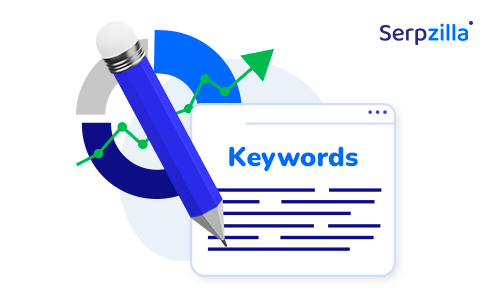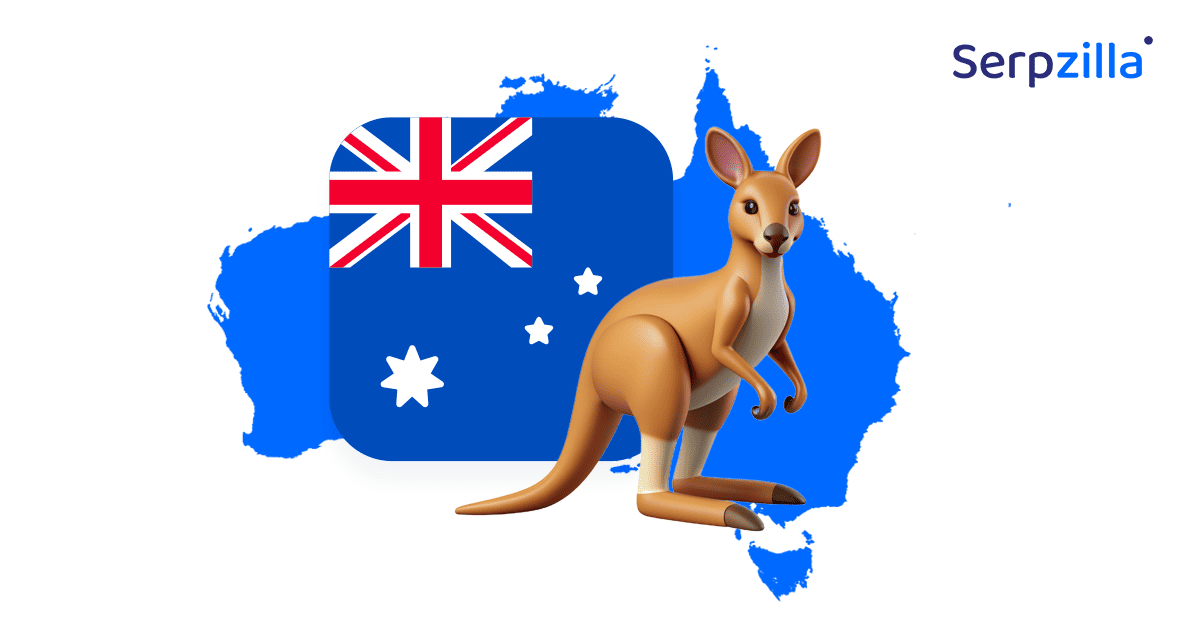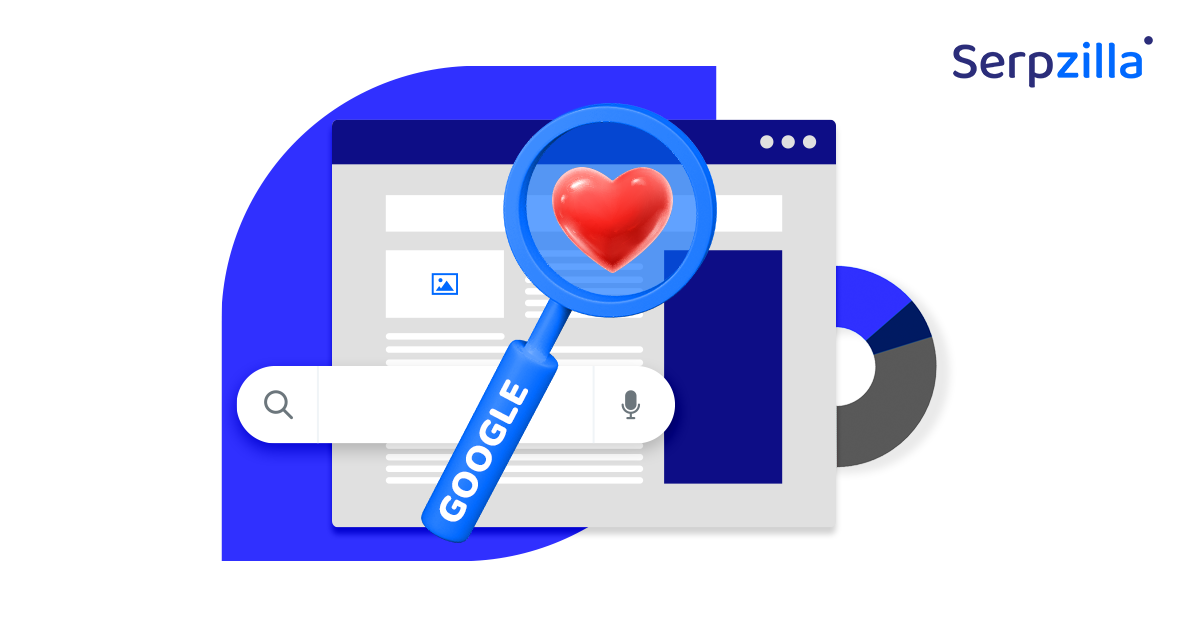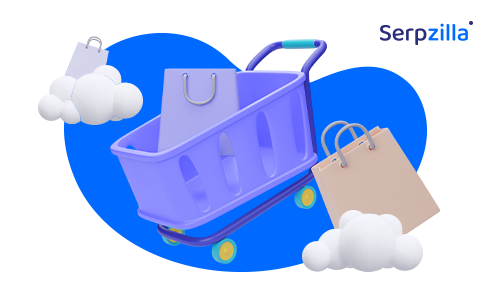ChatGPT and Conversational AI for Advanced SEO
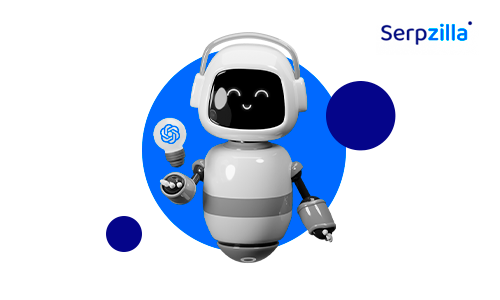
The launch of the OpenAI platform powered by ChatGPT (Chat Generative Pre-Trained Transformer) in November 2022 took the world of SEO and content by storm. Everyone realized that creating content and adding meta information to web pages will never be the same again. SEOs were quick to jump on to the possibilities that ChatGPT opened up in keyword research, content creation and optimizing copy.
However, as I write this, the world of AI-based searchbots has been left wide open once again. Google announced the release of its conversational AI service “Bard” to counter ChatGPT. Microsoft, OpenAI’s biggest investor, countered within hours by putting ChatGPT 4 on the homepage of its Edge browser as well as Bing search engine.
Leaked screenshots of Google’s AI search “Bard” vs leaked screenshots of Bing’s ChatGPT
Which do you prefer? pic.twitter.com/vie8x2LhPT
— Chris Frantz (@frantzfries) February 6, 2023
So what is the potential that AI-based search and conversational AI bring to the table in SEO? Is SEO, as we know it, finally dead? Will SEOs have to re-learn their skills all over again or finally concede superiority to algorithms?
Let’s use OpenAI’s ChatGPT as a benchmark and a testing tool (just because it’s been around for three months now) and see what SEOs can do, can’t do, should do and shouldn’t do with it.

What Is ChatGPT and What Does It Do?
ChatGPT is technically a chatbot built on top of the GPT-3 “language model” developed by OpenAI. It uses supervised and reinforcement learning techniques to store, return and apply knowledge and information.
ChatGPT uses artificial intelligence (AI) to process massive amounts of stored data to interact with users as a human would do. It can answer questions, understand context, admit mistakes, decline to engage in inappropriate conversation and also challenge incorrect assumptions, just like humans would do. Needless to say, it also has some human biases inbuilt in its training data.
ChatGPT has applications in content creation (in multiple forms and areas, such as books and charts), writing and debugging code, education, interacting with others on social media, and so on.
ChatGPT and SEO
Being in SEO, you intuitively know that ChatGPT can function as a short cut for many of your time consuming tasks, such as keyword research, on-page optimization, outreach and link building. Here are the major ways in which ChatGPT makes SEO easier or better:
Keyword Research
In SEO, the most tools have been built for keyword research. We SEOs never tire of perfecting or increasing the list of keywords we can rank for. We create giant lists and spreadsheets and clusters of keywords. How can ChatGPT help?
Creating a bigger list of seed keywords
The seed keywords are not always obvious to SEOs or even the clients. The traditional way takes a lot longer, but ChatGPT, based on its knowledge, helps you target more intents and a wider audience.

Create keyword clusters
Further, you can tell ChatGPT to classify or categorize these keywords for better topic clustering.
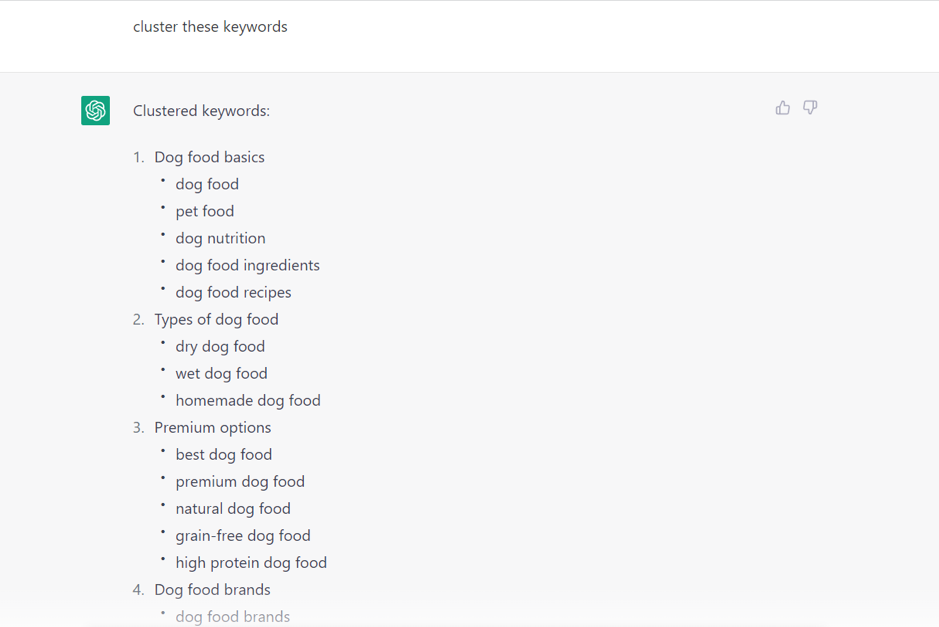
Translate keywords
Now what if your site is not in English? No problem! ChatGPT will translate the keywords into a language of your choice in a jiffy.
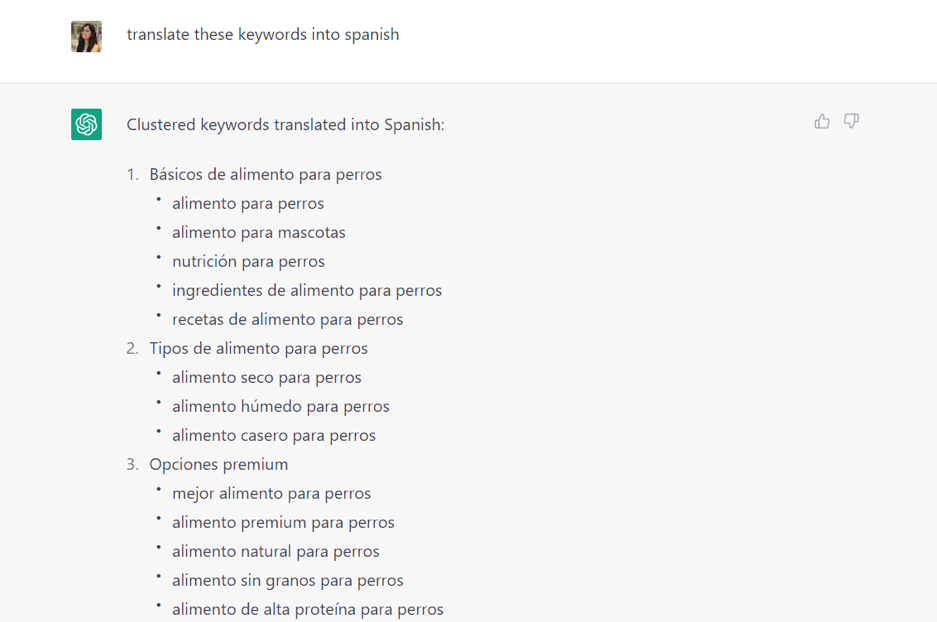
Link Building and Outreach
What’s the best way to build high-quality links? Get a Serpzilla account and set it in auto mode!
OK, what’s the best *manual* way? To contribute your content to other sites – what we know better as guest posting or digital PR.
But the best websites in your industry probably get hundreds of guest post requests a day. What differentiates you is your pitch to them. ChatGPT can help craft a personalized pitch to your target websites.
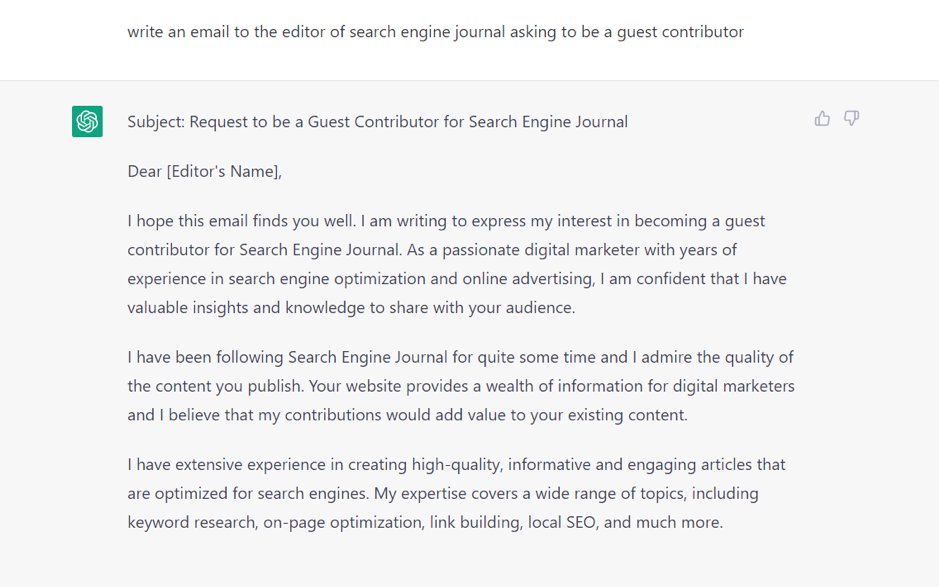
On-Page SEO
ChatGPT can help not only in off-page but also on-page SEO. You can use it to create page titles, meta descriptions, schema code, and so on for your pages.

ChatGPT and Content Marketing
SEO and content go hand in hand. Needless to say, ChatGPT is also causing a revolution in content creation and marketing.
Creating Titles and Headlines
First and foremost, you can use it to create a list of titles for your content calendar. Say you’re a SaaS company that sells a marketing analytics app and you want to plan your blog content. Here you go (thank me later):
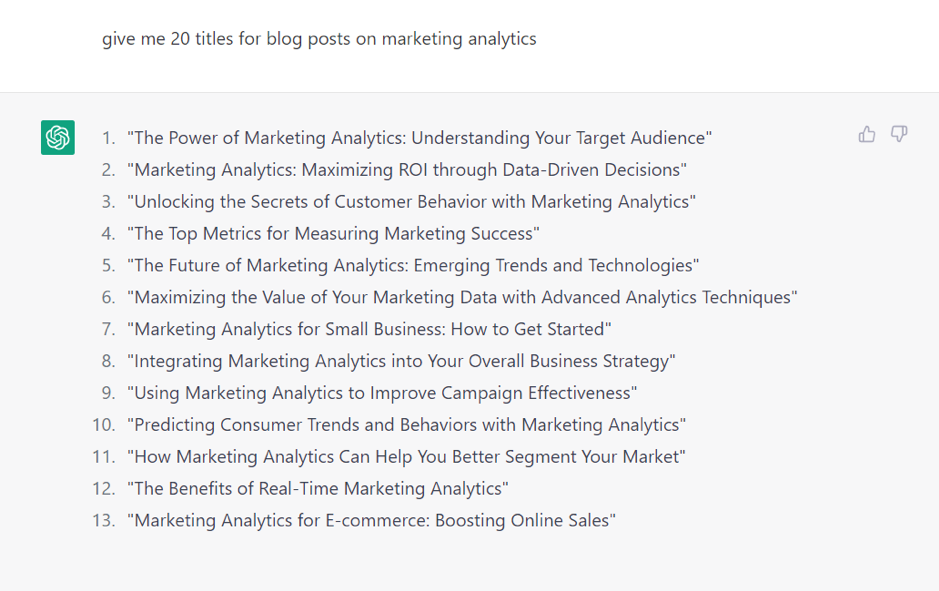
Creating Outlines and Structure for Content
Once you choose a topic for a blog post, where do you start? Writers spend hours researching a topic and creating outlines for a given topic, deciding what to include and what not to include, how to structure the post, the sub-headings, and so on. ChatGPT cuts that time to minutes.

Content Creation
Now this is a big one. Content duplication is a huge issue in SEO and AI-generated content is treated the same as plagiarized content by Google. In fact, Google’s John Mueller has categorically asserted that AI-generated content violates Google’s webmaster guidelines:
“Maybe the quality of content is a little bit better than the really old school tools, but for us it’s still automatically generated content, and that means for us it’s still against the Webmaster Guidelines. So we would consider that to be spam.
I imagine like with any other of these technologies, there will be a little bit of a cat and mouse game, where sometimes people will do something and they get away with it, and then the webspam team catches up and solves that issue on a broader scale.”
Google’s recent Helpful Content update reportedly penalizes web pages with significant amounts of AI-generated content.
What you can do is to get content written by your team and then ask ChatGPT to optimize and rephrase it, probably with a tone and voice that matches your brand personality.
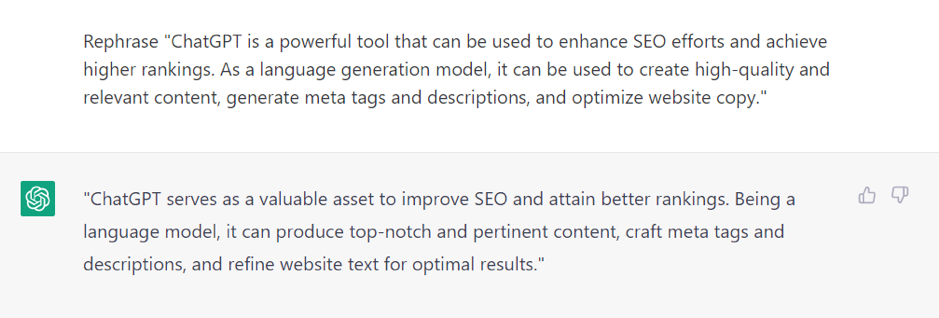
The Future of SEO and ChatGPT Is Interwoven
ChatGPT is a powerful tool for SEOs and content marketers. It has the potential to save you hundreds of hours of manual effort per campaign. On the other hand, it is not without its limitations. Every AI-based model is only as accurate and up-to-date as the data fed into it. Plus, this data is never free of biases.
As with any other tool in SEO, ChatGPT is liable and likely to be overused, even in situations where it shouldn’t. As John Mueller said, it will be a cat-and-mouse game between SEOs and Google, where both sides will use AI to get the upper hand in achieving their objectives – whether it is to get better rankings or limit web spam.
Do you use ChatGPT in your regular SEO work? In what ways? I’d love to hear about your experiments and successes in the comments!





